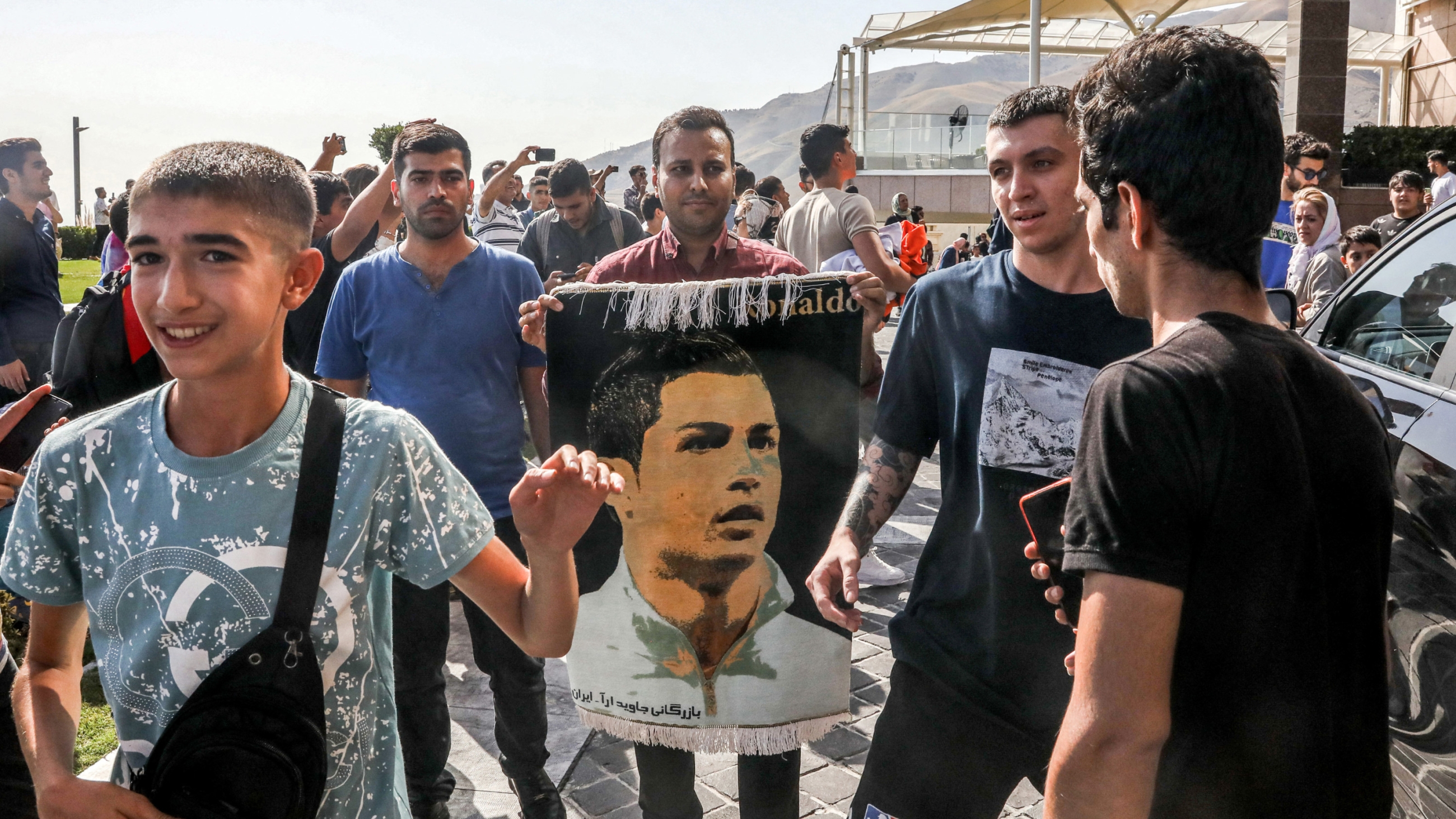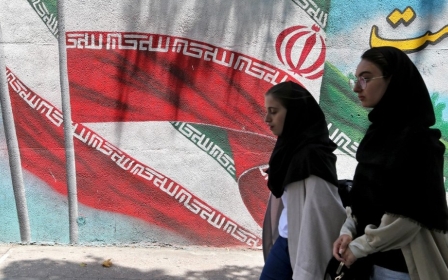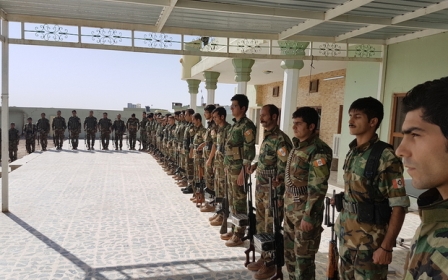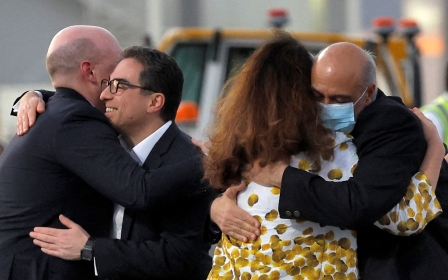Iranian press review: 'Ronaldo syndrome' hits the streets

'Collective fascination' by Ronaldo criticised
The forceful entrance of a group of Iranians into the Espinas Palace Hotel, where Portuguese football star Cristiano Ronaldo was staying, has sparked criticism.
On Monday, several videos and photos went viral on Farsi social media, showing Ronaldo's passionate fans climbing the hill where the hotel was situated and then entering the hotel lobby to catch a glimpse of the footballer.
The Donya-e Eqtesad daily coined the term "Ronaldo Syndrome" to describe the turmoil at the luxurious Tehran hotel, where Ronaldo and other members of Saudi Arabia's Al-Nassr FC were staying for the AFC Champions League match against Iran's Persepolis FC.
"While the enthusiasm to see football stars is universal, forcibly entering the hotel and chasing after the team's bus is far from ordinary behaviour," noted the daily.
Stay informed with MEE's newsletters
Sign up to get the latest alerts, insights and analysis, starting with Turkey Unpacked
Donya-e Eqtesad delved deeper into this phenomenon through interviews with sociologists, who cautioned that such reactions from the public indicated an "imbalance in society".
"This kind of collective fascination tends to occur in societies with limited freedoms and numerous social deprivations," concluded the daily.
Former detainees criticise 'extortion' tactics
Two former prisoners with Iranian and Austrian citizenship, along with a recently freed Iranian-American inmate, have criticised Iran's practice of detaining citizens with dual nationality and then releasing them in exchange for money.
Massud Mossaheb, an Iranian-Austrian businessman, condemned the Iran's practice of arresting foreigners, describing it as "extortion".
"The allegations against these individuals lack merit, and Iran exploits them for extortion, a pattern likely to persist unless a significant international coalition opposes it," he told BBC Persian.
Mossaheb, who regained his freedom in a prisoner exchange in June, had been apprehended in 2019 and sentenced to 10 years in prison on charges related to espionage.
Kamran Ghaderi, another former inmate of Iranian and Austrian heritage, said intelligence officers had informed him that his "value" had decreased during his incarceration.
Ghaderi, arrested in 2016 and handed a 10-year sentence for alleged espionage on behalf of the US, was also part of the same prisoner exchange in June.
"Before my release, two officers from the ministry of intelligence informed me that the letters I sent to secure my release were ineffective. They asserted, 'The Austrian government understands our demands. You've been in prison for five years, and now your value is lower than when you were incarcerated for two years,'" Ghaderi revealed in his interview with BBC Persian.
Both Mossaheb and Ghaderi were released in exchange for the freedom of Assadollah Assadi, an Iranian diplomat convicted of attempting to bomb Iranian exiles in France.
Meanwhile, Siamak Namazi, who was released on Monday in the latest prisoner swap, issued a statement urging a firm response to the detention of dual citizens in Iran.
"Over the past 44 years, the Iranian regime has mastered the nasty game of caging innocent Americans and other foreign nationals and commercialising their freedom. By now, Evin Prison is virtually a dystopian United Nations of Hostages," he said in his statement.
Rising demand for anti-depression pills
A year after nationwide protests swept Iran, there has been a significant increase in the number of youths seeking anti-depression and sleeping pills, the Ham Mihan daily reported.
On Sunday, the daily wrote about Iran's growing mental health challenges under the headline: "Meaningful increase in despair and hopelessness".
Ham Mihan's interviews with 13 mental health experts and several pharmacists revealed a surge in problems such as depression, hopelessness and apathy nationwide after a year of pushing for change in the country was met with an iron fist.
The daily added that pharmacists in Tehran indicated that one out of every five prescriptions they received every day was for anti-depression medicines, while sleeping pills were also in high demand by the youth.
"Anti-anxiety drugs like Clonazepam, Lorazepam, Chlordiazepoxide and Alprazolam are highly sought after, with Alprazolam leading the list," reported the daily, referring to a fast-acting tranquilliser.
A psychologist explained the cause behind this new trend in Iranian society, saying: "Last year, efforts were made to bring about change, but without any tangible results. The primary consequence in such situations is a sense of hopelessness, which often leads to depression."
* Iranian press review is a digest of news reports not independently verified as accurate by Middle East Eye.
Middle East Eye delivers independent and unrivalled coverage and analysis of the Middle East, North Africa and beyond. To learn more about republishing this content and the associated fees, please fill out this form. More about MEE can be found here.





